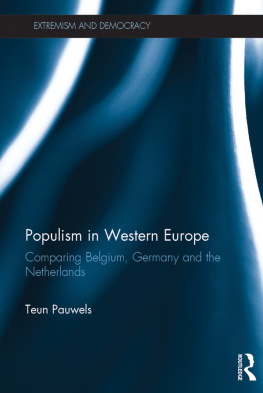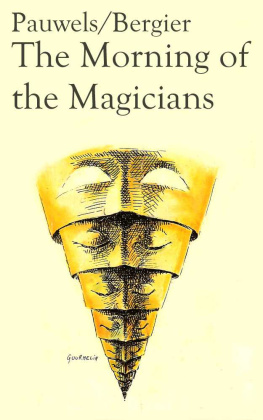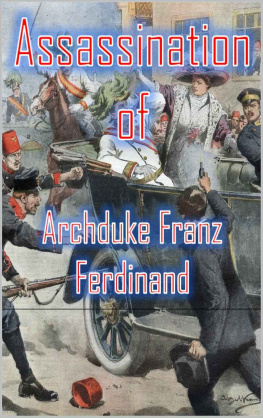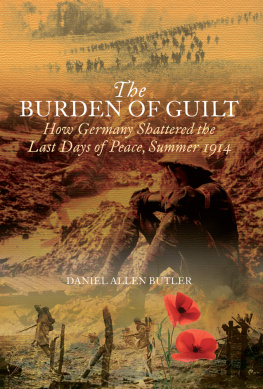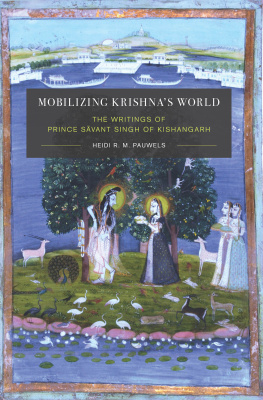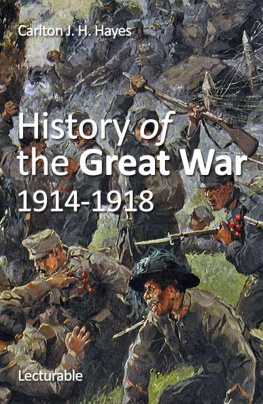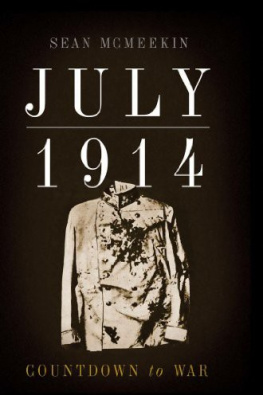Jacques R. Pauwels
Foreword The Great War in Dali-vision
Our house stood beside the railway, in a village halfway between the towers of Bruges and Ghent, as Jacques Brel used to sing in a popular chanson about the Flemish countryside, Marieke . During the First World War, my grandmother used to watch German trains roll by, full of soldiers and loaded with all sorts of war equipment, on their way to the front in the extreme west of Flanders, the famous Flanders Fields. An English war poet killed in 1916, Raymond Asquith, son of Britains wartime Prime Minister Herbert Henry Asquith, actually devoted a few verses to this railway line in a poem entitled Liquid Fire and Poison Gas:
Only insignificant
Traffic passed from Bruges to Ghent
But the line from Ghent to Bruges
Is quite another pair of shoes.
..........
They are moving troops from Ghent
To the Ypres Salient.
Occasionally one of these trains would stop in our little station, and my grandmother would talk the engineer into treating her to a few kilos of coal, enough fuel to feed the hungry old-fashioned stove in her kitchen for a day or so. The German soldiers who passed through our village ate pumpernickel, a very dark type of bread, sliced and topped with a thick layer of real butter (which shocked the thrifty folks of our village), and they accompanied that with a generous helping of liverwurst or cheese. That must have been in the early stage of the war, since from 1916 on, German soldiers and civilians experienced serious food shortages. The situation would be even worse for the people in occupied Belgium.
In 1914, when the Germans invaded Belgium, my father, still a young child, had fled to France with his parents and siblings, like thousands of other Belgians. They were to spend the four long years of the war in Thieulloy-lAbbaye, a village near Amiens, capital of the province of Picardy. My father went to school there, which is why even late in life he still spoke French fluently. His mother my other grandmother I have never known, since she died there and lies buried in the churchyard of that Picardian parish. My godfather, the brother of my mother, was a carpenter just like his father, and during the 1920s they helped to rebuild the devastated regions around the town of Ieper (Ypres), the urban hub of Flanders Fields.
On November 11, after the high mass, a ceremony would take place at the war memorial. Proud chests loaded with decorations helped me recognize the war veterans, the heroes of whom it was respectfully whispered that they had been in the trenches, but I had no idea what this was supposed to mean. I was told that the Allies had won the war because those smart little Belgians had flooded the plain of the Yser River, thus halting the hitherto irresistible advance of the German juggernaut. In high school we had a teacher a priest, no less who demonstrated enthusiastically how a soldier would pierce an enemys belly with his bayonet during the Great War. He also proclaimed loudly that in this conflict the French had been the bravest and therefore the best soldiers. And I gobbled it all up.
As an adolescent, to improve my high-school French, I was made to spend a holiday with a family in the village of Brimeux, in the north of France, close to the town of Montreuil-sur-Mer where, in 19141918, the British commander-in-chief, Douglas Haig, had his headquarters. There I met a man in his sixties who had fought in the First World War and who told me about his experiences. He had served in the army of Charles Mangin, a general known as the butcher. It was only years later that I realized that he had not meant butcher of Germans, or Boches , as the French called them, but of his own soldiers.
And then I saw the brillant film Stanley Kubrick directed in 1957, Paths of Glory . It was inspired by a book of the same name, written in 1935 by Humphrey Cobb, an American born in Italy who, during the Great War, had joined the Canadian army as a volunteer. The film was never formally prohibited in France, but it was not screened there in theatres until 1975. The reason for this was undoubtedly because it offered a very unconventional view of the French army of 19141918 and, indeed, a very different view of the First World War in general. It amounted to a ruthless settlement of accounts with the illusions, the myths, and the nonsense we had been served and are still being served with respect to the complex drama of that war.
Paths of Glory dealt with the Great War, but not in the conventional way, that is, as a conflict between the French and the Germans and their respective allies. The camera hovers on the French side and it even fearlessly accompanies the poilus , as the French soldiers were known, into the sinister no mans land, once on a night patrol, and once during a large-scale daytime attack. But not a single German soldier makes an appearance in the film, not a single specimen of Frances great official enemy. It is only at the very end that someone from the other side of the Rhine, as they say in France, shows up on the screen. But instead of a stereotypically boorish Boche , it turns out to be a pretty young woman, who is supposed to entertain a crowd of French soldiers during a pause in the fighting. She tries hard, in spite of her timidity and clumsiness, to perform a traditional German love song, with as theme a hussar who had to leave his love to go to war: Es war einmal ein treuer Hussar (There Once was a Faithful Hussar). The Frenchmen do not understand one iota of the songs lyrics, but the melody, sad and catchy at the same time, reminds them of their own loved ones, left behind at home in order to fight a bloody war God knows why! against people just like them, of whom they know only too well that they too would have preferred to stay in the heimat with their mother, wife, or fiance. The film, which was introduced noisily by the music of the militaristic and bloodthirsty French national anthem, the Marseillaise , ends emphatically with the poilus humming a German love song.
Wheels within wheels is an expression that alludes to hidden or little-known aspects that make it difficult to understand complex phenomena, including complex historical phenomena. What was to be called the Great War, and was later known as the first of two World Wars, constitutes a complex historical phenomenon featuring wheels within wheels. The exterior wheel is that of the military events. That wheel has been examined in great detail by countless historians and has benefited from an inordinate amount of attention from the media, for example in the form of TV documentaries. The public is therefore most familiar with that aspect of the war. But within the military wheel of the Great War there were other wheels, less visible perhaps, but which also played important roles in the historical reality of 19141918. Within the mechanism of the Great War, a cultural wheel also happened to be turning, and it is also possible to study and interpret the Great War from a cultural perspective. This is what a Canadian historian, Modris Eksteins, achieved in a book published in 1989, Rites of Spring: The Great War and the Birth of the Modern Age ; and just recently, in 2013, a similar study was published in Germany, namely, Ernst Pipers Nacht ber Europa (Night over Europe). But the general public is far less familiar with this type of approach and interpretation.

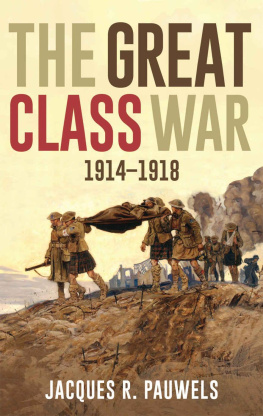
![Jacques R. Pauwels - The Myth of the Good War: America in the Second World War, Revised Edition [v.2]](/uploads/posts/book/173448/thumbs/jacques-r-pauwels-the-myth-of-the-good-war.jpg)

